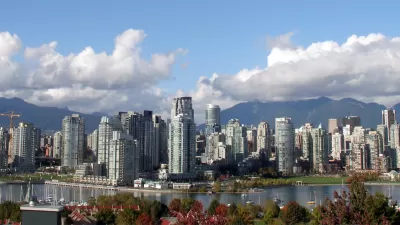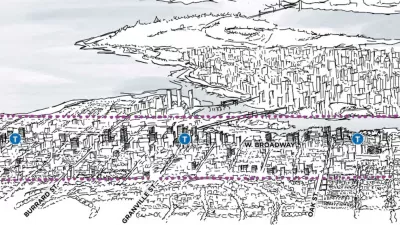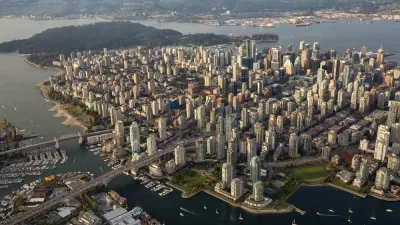In a significant step for more diverse housing and transit-friendly development, the Vancouver City Council eliminated parking minimums and adopted a Transit-Oriented Areas (TOA) policy.

In a significant step towards more diverse housing and fostering transit-friendly communities, today, Vancouver City Council adopted the Transit-Oriented Areas (TOA) Designation By-law and eliminated minimum parking mandates.
“This is a major milestone in our commitment to expanding housing choices for all Vancouver residents,” said Mayor Sim. “By integrating housing diversity with transit accessibility, we are paving the way for a more sustainable, inclusive, and vibrant city. These measures will help us meet the housing needs of our residents while fostering complete, connected communities.”
Today’s actions align with requirements under the Province’s TOA (Bill 47) legislation. Introduced in November 2023 this bill aims to promote the development of more diverse housing and the creation of walkable, transit-friendly neighbourhoods.
Transit-Oriented Area designation by-law
The City’s new TOA By-law designates 29 TOAs and adopts the following minimum densities:
- Rapid Transit (SkyTrain) Station: Within 200 metres, up to 20 storeys; within 400 metres, up to 12 storeys; within 800 metres, up to 8 storeys.
- Bus Exchange: Within 200 metres, up to 12 storeys; within 400 metres, up to 8 storeys.
The TOA By-law is accompanied with a rezoning policy which provides guidance on rezoning conditions, but is not itself a rezoning. Property owners will need to apply to rezone their property if they would like to increase height and/or density above what is currently allowed. The City is progressing through other work plans to proactively zone these and other areas, which will come forward to Council for future decisions.
Minimum parking requirements for all land uses eliminated city-wide
Council also voted today to eliminate minimum parking requirements, city-wide, for all land uses. This action goes beyond the Province’s legislation for Transit Oriented Areas TOAs and Small-Scale Multi-Unit Housing (SSMUH) and makes Vancouver the fourth Canadian city (after Edmonton, Toronto and Montreal) to remove these requirements.
Removing this requirement city-wide will advance the City’s objectives to simplify regulations and accelerate permit approval times as well as move us ahead on our transportation and climate emergency goals. Part of this work includes simplifying Vancouver's Parking By-law that will be reduced from 33 to 17 pages and 63 unique parking rates will be deleted. Accessible spots for people with disabilities, visitor spaces, bike parking spaces, and loading spaces will continue to be required.
Eliminating minimum parking requirements allows developers to provide the right amount of parking that their project needs. Staff do not anticipate significant impacts to on-street parking, however, tools such as time limits, pay parking or permit parking could be introduced to manage any impacts. (Read more in the Council report).
More diverse housing
City Council also passed amendments to the Zoning and Development By-law last week, aligning it with the Province’s SSMUH legislation (Bill 44). Multiplex homes are now permitted in more areas. This means the vast majority of Vancouver’s single family zones are now eligible for multiplexes.
Next steps
The City will ensure the effective implementation of TOA and SSMUH legislations. These changes, and other initiatives to advance more housing supply and housing options, are being advanced through the implementation of the Vancouver Plan. To mitigate land speculation and in alignment with achieving the objectives of the Housing Needs Report, the focus will continue to be on increasing rental and affordable housing over market condominiums.
FULL STORY: Vancouver passes two significant actions to promote diverse housing and transit-friendly communities

Planetizen Federal Action Tracker
A weekly monitor of how Trump’s orders and actions are impacting planners and planning in America.

Congressman Proposes Bill to Rename DC Metro “Trump Train”
The Make Autorail Great Again Act would withhold federal funding to the system until the Washington Metropolitan Area Transit Authority (WMATA), rebrands as the Washington Metropolitan Authority for Greater Access (WMAGA).

The Simple Legislative Tool Transforming Vacant Downtowns
In California, Michigan and Georgia, an easy win is bringing dollars — and delight — back to city centers.

The States Losing Rural Delivery Rooms at an Alarming Pace
In some states, as few as 9% of rural hospitals still deliver babies. As a result, rising pre-term births, no adequate pre-term care and "harrowing" close calls are a growing reality.

The Small South Asian Republic Going all in on EVs
Thanks to one simple policy change less than five years ago, 65% of new cars in this Himalayan country are now electric.

DC Backpedals on Bike Lane Protection, Swaps Barriers for Paint
Citing aesthetic concerns, the city is removing the concrete barriers and flexposts that once separated Arizona Avenue cyclists from motor vehicles.
Urban Design for Planners 1: Software Tools
This six-course series explores essential urban design concepts using open source software and equips planners with the tools they need to participate fully in the urban design process.
Planning for Universal Design
Learn the tools for implementing Universal Design in planning regulations.
Smith Gee Studio
City of Charlotte
City of Camden Redevelopment Agency
City of Astoria
Transportation Research & Education Center (TREC) at Portland State University
US High Speed Rail Association
City of Camden Redevelopment Agency
Municipality of Princeton (NJ)





























